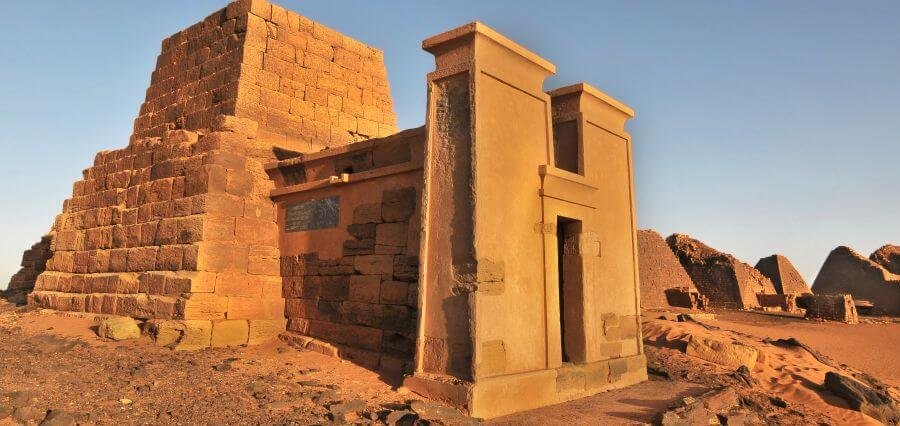Sudan is a country with an amazing past and culture, awesome views, and a very rich culture, but it remains unknown to most people worldwide. Africa is often the starting point for discussions, and then Egypt or South Africa pops into the mind before Sudan, but this country is actually full of ancient ruins, a variety of traditions of the different ethnic groups, and natural wonders. If you want to get a real feel for Sudan, you need to get beyond the current and historical issues and see what the realities are. Here we present to you some of the interesting facts that will open your eyes to the fantastic and unique country of Sudan.
A Land with Ancient Roots
One of the things that really amazes me about Sudan is that it had been an African kingdom called Kush whose history could compete even with that of ancient Egypt. For centuries the Nile Valley was under the rule of the Kushite kings; hence, the pyramids of Sudan outnumber those of Egypt. Actually, over 200 pyramids are to be found in the Meroë region, Sudan, making it one of the places on Earth with the most pyramids. Compared to Giza’s huge monuments, the Sudanese pyramids are not as big, but they are taller, and they are more beautiful in their own way, telling the stories of the past, the histories of the different rulers, and especially of the queens Kandes, who were the ‘Kandakes’ or ‘countesses’ in general.
Because of Sudan’s relationships with the different ancient cultures, it is a very interesting place to visit for archaeologists and history fans. By being at the site of the ruins, one can be totally immersed in the past, where Sudan was an arts, religions, and trading center of the Nile Valley. Only a few people are aware of how much world history can be found in the deserts of Sudan and along the Nile River.
A Cultural Mosaic
Besides its impressive history, Sudan today is a cultural anagram of more than 500 ethnic groups and approximately 120 different languages. This enormous variety of cultures and races is the most outstanding feature in the nation’s identity, wherein the mixture of the four most dominant cultures, the Arab, Nubian, African, and Islamic, produces a unique blend. One of the most interesting facts about Sudan is how these groups with different cultures established peaceful relations and are presently coexisting side by side, thus influencing music, clothing, food, and festivals.
Nubian culture is still a very important part of the Sudanese lives, and the Nubian villages, which are the only traditional ones on the Nile, show this through their colorful and brightly painted houses, which really stand out as the most colorful identity that one can find in the area. Hospitality is the most important part of Sudanese culture, and guests are always greeted with hot coffee or hibiscus tea, which goes along with nice and long stories and cute smiles. Culture statistics stuff the people of Sudan in numbers, but the citizens are the ones who live through the culture and the different values and acts of kindness in their day-to-day lives.
The Power of the Nile
The Nile River is not just a physical feature of the land; instead, it is the very heart of Sudan. The river, which flows northward, changes the barren desert into productive farmland, thereby making the supply of food and settling of people possible. An interesting fact about Sudan is that the place where the Blue Nile and the White Nile meet is in the capital city of Khartoum. This meeting of the two rivers makes the country important for the people who live downstream.
In the past, the Nile had been supporting the civilizations on its banks, but in present-day Sudan, it is also used to provide the region with power through a number of big projects in farming and hydropower. Sudan grows sorghum, millet, and wheat with the water from the Nile, which is why the country can be considered the breadbasket of Africa. For tourists, the river’s beauty brings them endless memories of the past with its sunsets, birds, and the endless horizon they get to see every day.
Land of Contrasts
From a geographic perspective, Sudan is the third most extensive country in Africa, spreading out over the different terrains of deserts, savannas, and green regions. This immense area is tops for nice contrasts. The Sahara Desert dominates the country’s north with its graves and dunes of sand, giving off an impression of an ancient loneliness. On the other hand, the south is blessed with earth that is greener and more fertile and full of flora and fauna.
Struggles and Resilience
Just to be clear, Sudan is not all about the past and nature alone. This country has been through a lot of problems,civilizations. such as political upheavals and long wars that have been the center of global news. On the other hand, the country’s people’s resilience is what keeps it amazing. Even during hard times, Sudanese communities not only struggle but also survive with their heritage, arts, and the hope of keeping fights away from their lands.
Present-day Sudan is standing at the midpoint of change, where it is trying to balance between the past, showing off its historical heritage, and the future, with hopes of it being stable and growing. You can see the spirit in the busy markets, cultural festivals, and universities, as well as the youth who are mostly energized, thinking, and representing the future of the country in cities like Khartoum.
A Hidden Travel Gem
Sudan is still largely a “haven not yet found” by most international travellers. A lot of visitors are astonished by the fact that Sudan has a greater number of pyramids than Egypt, and its UNESCO sites comprising Gebel Barkal and the Napatan Region are slowly getting people to notice. The adventurers are surprised at the unspoiled beauty of the Bayuda Desert, the hospitality of the Nubian villages, and the feeling of stepping into a place where history and nature meet quietly but spectacularly.
The tourism industry in Sudan is still in its infancy; however, it has one thing that is very hard to find: authenticity. It is not like other famous tourist places that are crowded with lots of tourists. The attractions of Sudan allow tourists to have direct contact with history and culture without any difficulties. Every trip to Sudan is not only going back in history but also seeing the people who are extremely strong, as their traditions are still there despite the challenges.




